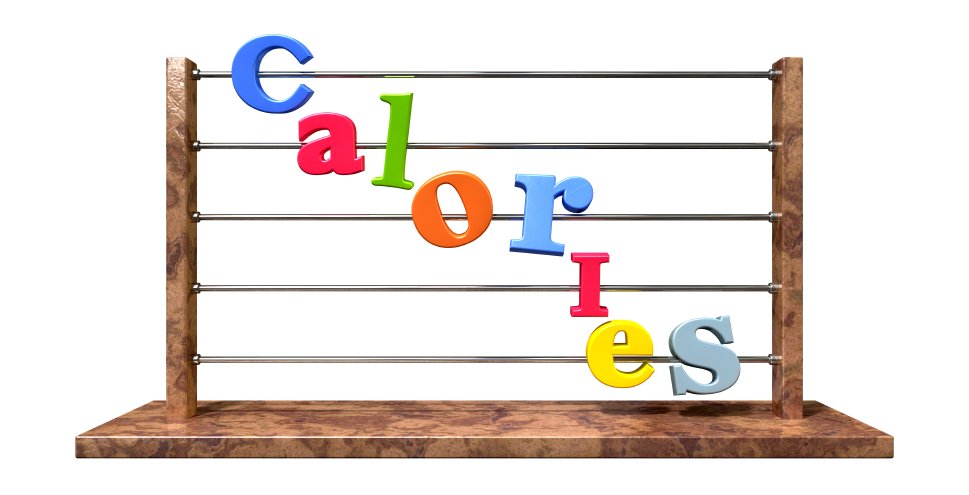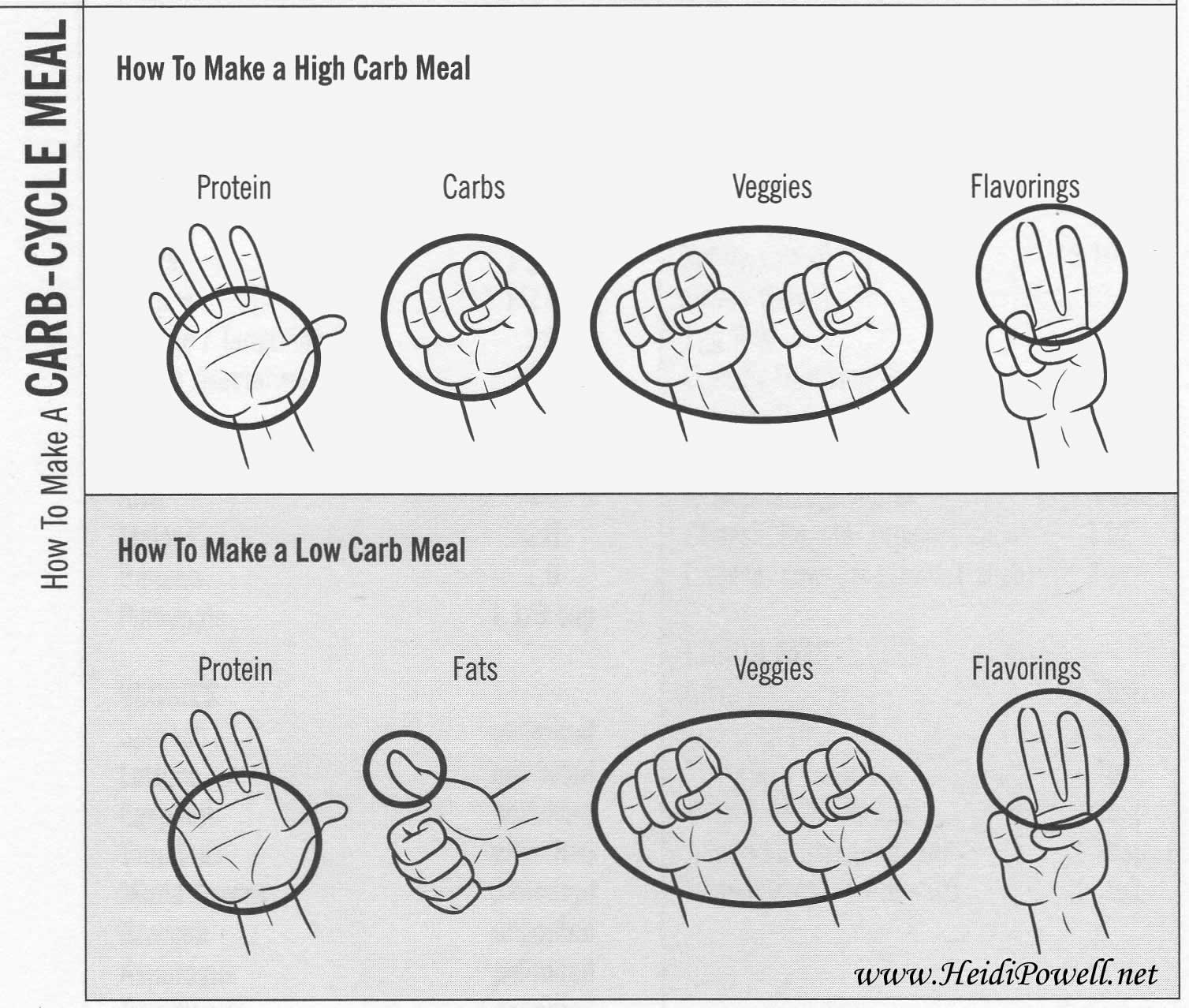You’ll find them in 99.99% of everything you eat and drink. They can be your greatest friends or your worst enemies. Eat fewer than you need and you lose weight. Eat more than you need and you gain weight. Yes, it is that simple.
Since calories affect everyone everyday, it?s important to understand them: what they are, what they do, and how to make them work for you instead of against you.
Some basic facts about calories:
- They represent the amount of energy in the foods you eat and drink.
- They are not partial to certain types of foods. A calorie from a carrot is the same as a calorie from a doughnut (although the carrot calorie is much healthier, of course!).
- Different types of foods are automatically higher in calories. Take 1 gram each of protein, carbohydrate, and fat. The grams of protein and carbohydrate each contain 4 calories, while the gram of fat has 9. Yes, that?s more than double the calories gram per gram. Yikes!
- One pound of fat = 3500 calories.
So how do you get calories on your side in your weight loss battle? First of all you need to know your Basal Metabolic Rate (BMR), which is the number of calories your body needs every day just to function properly?to breathe, circulate blood, adjust hormone levels, digest food, grow and repair cells, and so on. While there are several formulas to figure out your BMR, here?s an easy one:
Current body weight x 12 = BMR
150 pounds x 12 = 1,800 calories (BMR)
Simply put, if you eat more than your daily BMR, your body stores those extra calories as fat and you gain weight. If you stay below your BMR, you create a calorie deficit and you lose weight. One caution: women should never eat less than 1,200 calories a day, and men should never go below 1,500. Consuming too few calories sends your body into a protective starvation mode and slows down your metabolism, and a slow metabolism doesn?t burn calories as fast and can cause other problems as well.
There are three basic ways to create a calorie deficit:
- Eat fewer calories than your BMR.
- Exercise, because it burns calories and builds muscle, and bigger muscles burn even more calories!
- A combination of #1 and #2?the best option by far.
Here?s how this works:
- If you create a daily 500-calorie deficit, you?ll lose 1 pound a week.
- If you create a daily 1,000-calorie deficit, you?ll lose 2 pounds a week (remember that cutting too many calories from your diet is not good).
I know, I hear you: ?But Heidi, I don?t like to count calories.? You?re not alone. Counting calories is so not fun. However, it?s really important to know what you?re taking into your body every time you open your mouth. Studies show that most people think they?ve eaten 20% fewer calories than they actually have, so trying to estimate your calorie intake is a recipe for disaster.
Until you have an opportunity to weigh and measure your food to figure what your “correct” portions look like, this simple graphic shows a safe and easy way to choose appropriate portion sizes without measuring cups or a scale. This should also help keep you from creating a calorie surplus:
Some final words of advice:
- It?s important to recalculate your BMR as you lose weight.
- Some calorie tracking apps add the calories you burn from exercise into your daily to-eat total, making it look like you can eat more than you actually can, and if you do eat all those calories, you won?t have a calorie deficit at the end of the day. Instead, eat the number of calories in your daily eating plan, and subtract the calories you burned to see your deficit. Remember: one pound of fat = 3500 calories, so work to eventually create a 3500 calorie deficit.
- You can eat calories much faster than you can burn them, so don?t use those exercise-burned calories as permission to eat more food??I burned 500 calories this morning, so I can eat this cupcake.? So not a good way to do it!
To learn more about our preferred and proven eating and exercise plan?Carb Cycling?check out our book, Choose More, Lose More for Life.




205 Responses
I am following the chose to lose program and I am confused as to how many calories I should be eating a day. I weight 163 and I am 5’7. Would like to get down to 140-150..
I know the book says 1200 but 1 do an hour of cardio 5-6 days (on the stair climber and elliptical and they show a total of 600 calories burned just in my cardio ) a week and strength traing 30-45 mins 5 days a week. Is 1200 calories enough to eat a day on LC and 1500 a day on HC days? Plus all the other calories I’m burning through out the day? It’s been frustrating tribg to figure this out. Thanks
The heavier that someone is, the less accurate that calculation becomes [ wt (lbs) X 12]. It also does not account for gender, age, height, or current activity level. For example, a person who is 300 lbs, per her formula the BMR would be 3600 calories. Using a proper predictive formula (the Mifflin-st Jeor is the most accurate to date), this 300 lb person (who’s also let’s say a 50 y/o male that is 72″ tall and sedentary)…the estimated BMR is 2737 calories. Huge difference. Wish you showed more nutrition information on your show, but now that I’m seeing your blogs, I get that you are trying to keep your special diet plan of carb cycling a proprietary thing.
Hello!
Is it possible to find Chris’ book written in french? I really want to buy it! Thank. Jane
I’m sorry, but the book is only in English.
I have a unique question–what are some tips for trying to eat well, and lose (post baby) weight when your husband is a runner and most meals are planned around his calorie intake/needs? This is of course while juggling work and two little ones. Thanks!
You might be interested in following the Fit Cycle (https://heidipowell.net/2719/carb-cycling-the-fit-cycle/). This cycle is specifically designed for those who are athletes, so hopefully it would work for both of you! You can find Chris and Heidi’s complete carb cycling program in their book, “Choose More, Lose More for Life,” and the book also has lots of helpful tips and recipes for busy families. Give it a try!
What happebs when the bmr, eexcercise calories add up to weightloss but the SCALE doesn’t reflect those changes? ?? Or only slowly losing when the math suggests a bigger loss? Am I supposed to stay fat forever?
No! Please remember that there are ways other than the scale to know you’re losing weight. If you’re exercising, you’re building muscle, and muscle weighs more than fat. Just be patient, exercise regularly, make sure you’re fueling your body with the right amount of healthy foods, and the weight will come off. If you’re interested, Chris and Heidi’s carb cycling program in their book, “Choose More, Lose More for Life,” is an awesome nutrition and exercise program, and it will outline everything you need to do to reach your weight loss goal. Here are the nutrition basics: https://heidipowell.net/2713/carb-cycling-101/. Hope that helps!
This seems like a lot of calories! I’m 315 lbs, so I need to eat less than 3780 calories (315×12) to lose weight? Just doesn’t seem right. I have done a lot of half ironmans and I think my metabolism has slowed due to becoming efficient due to endurance. Could my rmr be lower than the calculations?
To answer your first question, yes – if you want to lose weight, you eat less calories than your BMR and burn additional calories through exercising. And yes, if you are very fit, this number could be different. Hope that helps!
I am super confused by this… Doing this calculation my BMR would be 3600, but every other BMR formula I’ve ever found puts me at about 2200-2500 calorie range. Does the “weight x 12” formula account for exercise or anything else? It seems so high. Thanks!!
The “weight x 12” formula is the number of calories your body needs to just function properly, and it’s a general formula. If you are very fit, this number could be a bit different since muscle does weigh more than fat.
Hello,
I have been using the Lose it app and weigh 175 lbs. I currently had foot surgery so I don’t want to gain any weight. I am a very active person so after having foot surgery on both feet, I am trying to avoid gaining weight. I do floor exercises and should be back to regular exercise (spinning) weight training in the next 2 to 3 weeks. I had surgery 4 weeks ago.
I have only lost 2 lbs. in the past 4 weeks and the calorie budget they gave me was 1.048 calories. I have been following it religiously. Of course this is based on losing 40 pounds in 90 days. Based on the BMR calculation you provided, it should be 2,100 calories.. I never ate that much to begin with.
Help!!
Help is on the way! Check out Chris and Heidi’s carb cycling program outlined in their book, “Choose More, Lose More for Life.” In this program you eat 1200 calories on a low carb day and 1500 calories on a high carb day. Here’s some info on the nutrition basics: https://heidipowell.net/2713/carb-cycling-101/. It’s the same program they use on the show, and it works!
Hi Heidi,
Your show is one reason I started on the path of being healthier. I started 3 months ago and have loss 50lbs. Now I do a lot of Kickboxing training for 30mins 3x a day. I’ve found it hard to actually accumulate 1500 calories a day. Avg about 1200-1300. According to this article if I multiply my current weight by 12 I should be taking in 3600 calories. Is this a must do in order for me to keep losing weight or is the avg 1300 calorie a day ok for now since I’m seeing results and not feeling tired. Love you guys, and I thank you guys because I would never got off that couch if it wasn’t for you and chris.
Congratulations on losing 50 pounds! If 1300 calories a day is working for you, that’s great! If your BMR is 3600 calories, then you’re adding a lot of calories to your deficit every day, which is leading to all those lost pounds. Remember, your BMR is the number of calories your body needs every day to function properly. If you want to gain weight, you eat more calories than your BMR, and if you want to lose weight, you eat less calories (either through diet and/or exercise) than your BMR.
Heidi,
I am currently using a heart rate monitor to determine the amount of calories burned while exercising. I play a lot of tennis and typically burn 1800-2000 calories during a 2 hour tennis outing. That seems high to me but my heart rate is also getting up very high (in the 170s), so I guess it makes sense.
What do you think the best way to measure calories burned is? Is the heart rate monitor a good measure? I feel that it is because as I get more conditioned, my heart rate will be lower because my body isn’t working as hard and is therefore burning less calories. Does that thought process make sense?
Thanks!
There are many ways to measure calories burned, so use whatever works best for you! There are also several calories burned calculators on the internet, which are also a good option. And yes, your thought process does make sense. 🙂